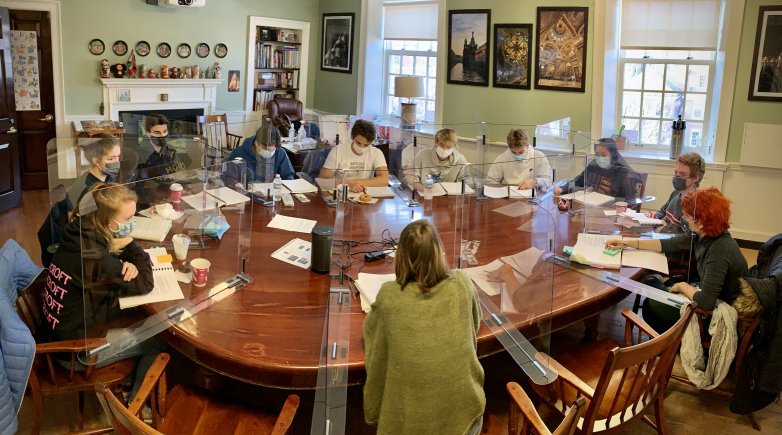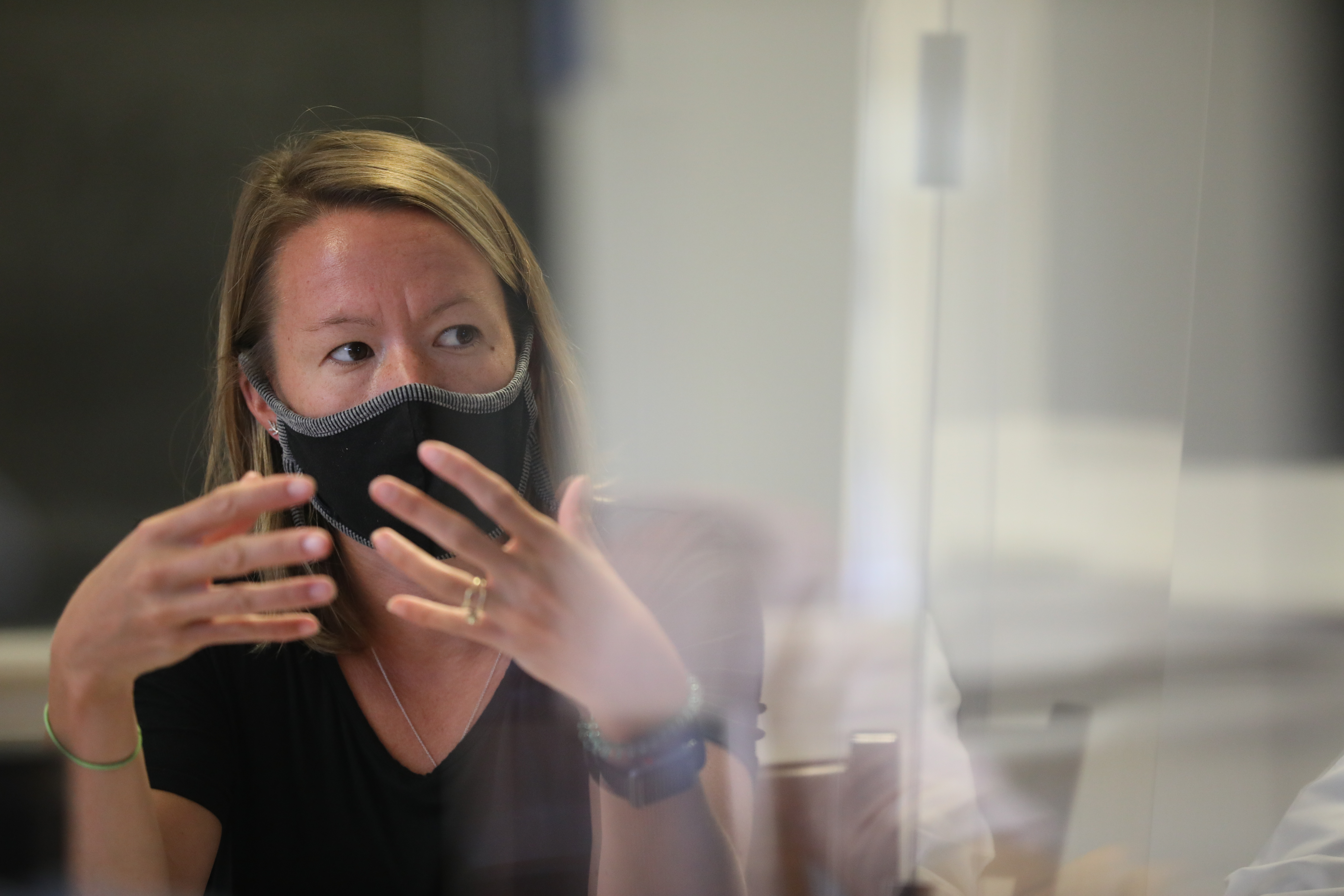Talking about the past in an extraordinary present
A Harkness discussion of U.S. History proceeds amid safety measures as fall term nears an end.
Alexa Caldwell's HIS410: U.S. History Colonial Origins to 1861 class meets during B format in Phillips Hall.
Plexiglas, Velcro and a Harkness table: three innovations never meant for the same conversation.
But if that peculiar alliance is what it takes for History Instructor Alexa Caldwell to gather with her students, then sign her up.
Caldwell is among two dozen Exeter instructors taking advantage of the health and safety measures installed in Phillips Hall to allow for in-person learning during fall term. Plexiglas partitions — fastened to the table with Velcro — a new ventilation system and 360-degree cameras to connect off-campus learners have transformed the century-old building into a hub of academic life. Normally the domain of English and modern languages, Phillips Hall has welcomed math, history and other pursuits throughout the term.
That’s meant every class is a road game for Caldwell, anchored in the Academy Building in ordinary times. That would explain why her U.S. History class is studying amid babushka dolls and photos of Moscow attractions. Room 404 is Modern Languages Instructor Inna Sysevich’s headquarters. Russian is its native tongue.
On this cool November morning, Caldwell and 10 uppers are speaking English and talking Abraham Lincoln — the Lincoln-Douglas Debates, specifically. They’ve reached the final week of the term. The Civil War, Reconstruction and the 20th century beckon in the next. The teacher is coaxing her students into a discussion about Lincoln’s opposition of slavery.
The conversation is groggy, attributable to the 8:15 a.m. start and in spite of Caldwell’s sweetening the pot with jelly donuts and coffee. A student asks a question, and the instructor allows it to hang over the table, waiting for takers. The drone of leaf-blowers on the quad offer the only reply.
Slowly, as the caffeine kicks in, so does the discussion. How does the Dred Scott decision, defining slaves as property, weigh on Lincoln’s argument to contain the spread of slavery? Caldwell asks.
It allows slave owners to bring slaves to free states, Connor ’22 answers.
And?
That would make all states slave states, he says.
The students are puzzled by what they see as conflicts in Lincoln’s position, that enslaved Black people should enjoy natural rights like all human beings but not political and social equality.
Then how would their conditions improve? asks Grace ‘22.
That’s not his goal, answers Carson ‘22. He wants people to have the opportunity to achieve economic mobility and the existence of slavery impedes that opportunity.
The class ends with Caldwell promising that the night’s readings would be exciting, covering Lincoln’s election, South Carolina’s secession and abolitionist John Brown’s speech to the court during his trial.
Picture Brown grizzled and broken and lying on a cot in the middle of the court room as you're reading, Caldwell says.
And grab some coffee on your way out.



